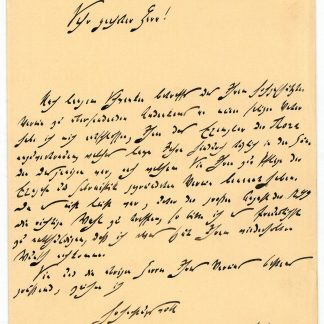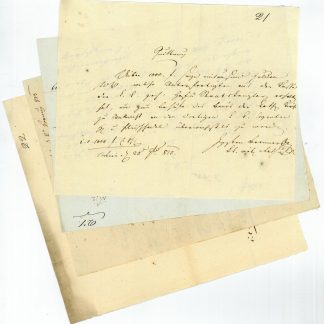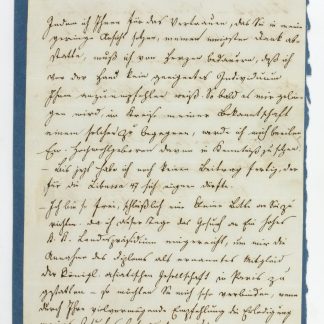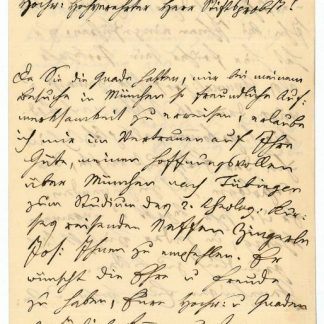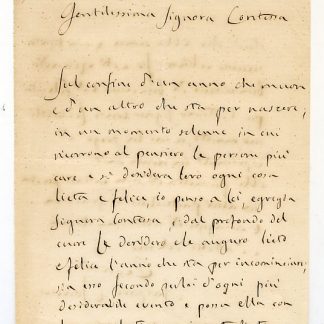Autograph letter signed.
Large 8vo. 2 pp.
€ 140,00
Poetic New Year Wishes to the famous archaeologist and cultural historian Ersilia Caetani, Countess of Lovatelli: "Sul confine d'un anno che muore e d'un altro che sta per nascere, in un momento solenne in cui ricorrono al pensiero le persone più care e si desidera loro ogni cosa lieta e felice, io penso a Lei, egregia signora contessa, e dal profondo del cuore Le [...] auguro lieto e felice l'anno che sta per cominciare [...] possa Ella con ferma salute e con imperturbata serenità di mente attendere agli studi che Ella ama e con tanto successo coltiva [...]". In closing, Gorresio adds greetings to her husband Count Giacomo Giovanni Lovatelli.
Ersilia Caetani-Lovatelli (1840-1925) received her extensive education through private tutors and self-study as Italian universities where not yet open to women. In her distinguished archaeological and art historical works, she focused on the material and everyday culture of ancient Rome. From 1870 until 1915, the Countess led the most prestigious salon of Rome that attracted artists and intellectuals such as Ferdinand Brunetière, Ferdinand Gregorovius, Franz Liszt, Theodor Mommsen, and Émile Zola. For her important contributions, she became member of some of the most important national and international academies and scientific societies, including the Accademia di San Luca, the Accademia della Crusca, and, as the first woman elected, the Accademia dei Lincei.
After studies in Turn and Vienna, Gaspare Gorresio received a stipend by the Piedmontese government to continue his Sanskrit-studies under Eugène Burnouf in Paris. The first chair in Sanskrit established in Italy at the University of Turin was awarded to him in 1852. His most important work is the edition and translation of the Valmiki Ramayana that was published over 20 years from 1846.
From the collection of Eduard Fischer von Röslerstamm (1848-1915).


